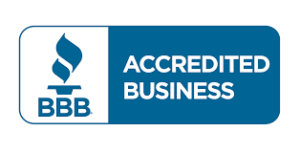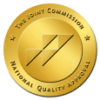Understanding how to help someone with alcohol addiction in Tennessee can be challenging and emotional. It’s natural to want to fix the problem, but it’s important to recognize that recovery ultimately depends on the person coping with alcohol use disorder. While you can’t force someone to stop drinking, there are meaningful ways you can offer support and encourage them to seek the help they need.
Tennessee Detox Center is here to help. We want you to know how to help someone you know who drinks too much, while giving yourself grace and setting boundaries. By understanding the signs of alcohol use disorder and taking steps to support those in need, you can make a positive impact on their recovery journey. When your loved one is ready to enroll in drug and alcohol treatment in Tennessee, we’ll be here to help.

Understanding Alcohol Addiction
Alcohol addiction, often referred to as alcohol use disorder (AUD), is a chronic condition that impacts around 18 million people in the United States alone. It goes beyond casual drinking, with consuming alcohol becoming a compulsion despite negative consequences to health, relationships, and daily life.
There are actual criteria that can be used to formally diagnose someone with alcohol use disorder. Like all substance use disorders, signs that someone has an addiction disorder include:
- Consuming larger amounts of alcohol or drinking over a longer period than intended.
- Persistent desire or unsuccessful efforts to cut down or control alcohol use.
- Spending a significant amount of time obtaining, using, or recovering from the effects of alcohol.
- Experiencing cravings, or a strong desire or urge, to use alcohol.
- Recurrent alcohol use resulting in failure to fulfill major role obligations at work, school, or home.
- Continued alcohol use despite having persistent or recurrent social or interpersonal problems caused or exacerbated by the effects of alcohol.
- Giving up or reducing important social, occupational, or recreational activities because of alcohol use.
- Recurrent alcohol use in situations where it is physically hazardous, such as driving or operating machinery under the influence.
- Continued alcohol use despite knowledge of having a persistent or recurrent physical or psychological problem that is likely to have been caused or worsened by alcohol.
- Developing a tolerance, which is defined as needing increased amounts of alcohol to achieve the desired intoxication or effect, or experiencing a diminished effect with continued use of the same amount.
- Experiencing withdrawal symptoms, such as nausea, sweating, shakiness, and anxiety, or consuming alcohol (or a closely related substance) to relieve or avoid withdrawal symptoms.
If you’re wondering how to help someone with alcohol addiction, the first step is to understand for yourself whether someone’s drinking is problematic. At TN Detox Center, we offer a drug and alcohol assessment that can help determine the severity of someone’s addiction. This can help guide you in finding the appropriate level of care and treatment for your loved one.
Recognizing the Signs of Alcohol Addiction
The above criteria are meant to help people who drink heavily determine if they have alcohol use disorder. But what if they keep their drinking a secret, or don’t share their concerns with you? There are certain outward signs of alcohol addiction that you might be able to pinpoint. Learning how to help an alcoholic also involves recognizing these signs, or making an effort to understand them, so you can encourage your loved one to get help from premium alcohol rehabilitation programs. These include the following.
Physical Signs
Certain physical signs can indicate that someone is drinking excessively, is currently intoxicated, or even has health problems associated with drinking. Jaundice, which is a yellowing of the skin and eyes, for instance, is an indicator of liver damage. Other physical signs to look for include:
- Unexplained weight loss or gain
- Changes in appetite
- Frequent headaches or migraines
- Difficulty sleeping or staying asleep
- Tremors or shaking hands
- Slurred speech
- Bloodshot eyes
If you notice any of these physical signs, it may be a good idea to have an honest conversation with your loved one about their drinking habits and potential health concerns.
Behavioral Signs
In addition to physical indicators, there are also behavioral signs that could suggest problem drinking. These can include changes in behavior, mood swings, and neglecting responsibilities. Some specific behavioral signs to look out for include:
- Irritability or aggression
- Defensiveness when asked about drinking habits
- Secretive or sneaky behavior related to alcohol consumption
- Neglecting important tasks or responsibilities
- Isolating oneself from friends and family
- Engaging in risky behaviors while under the influence of alcohol (e.g. driving under the influence)
If you notice these changes in your loved one’s behavior, it’s crucial to address them and express your concerns. Offer support and encourage them to seek help if needed.
How to Approach Someone You Think Has Alcohol Addiction
Approaching someone about their alcohol addiction requires sensitivity and preparation. If you want to know how to help an alcoholic recognize that they have a problem, here are some approaches to consider.
Approaching someone about their alcohol addiction requires sensitivity and preparation. If you want to know how to help an alcoholic recognize that they have a problem, here are some approaches to consider.
Choose the right time and place
It’s always best to wait until your loved one is sober to have a conversation about their alcohol use. If you choose to confront your loved one while they are intoxicated, they might not remember or take your concerns seriously. Additionally, choose a private and comfortable setting where you can have an open and honest conversation without distractions.
Express your concerns with care
When talking to someone about their alcohol addiction, it’s important to approach the topic with compassion and understanding. Avoid using accusatory statements or judgmental language, as this may only cause them to become defensive. Instead, express your worries and concerns from a place of love and support.
Listen actively
It’s crucial to listen actively when having a conversation about alcohol addiction. Allow the person to express themselves without interruption or criticism. This will help them feel heard and understood, which can make them more receptive to your advice and support. Pay attention to their body language and tone of voice, as these can also convey important information about how they’re feeling.
Educate yourself
Before having a conversation about alcohol addiction, it’s important to educate yourself on the topic. This will not only help you better understand what the person is going through, but it will also allow you to provide accurate information and support. Take time to research the effects of alcohol abuse, the signs of addiction, and available alcohol addiction treatment options. This will make your conversation more productive and meaningful.
Offer support
When talking to someone about their alcohol addiction, offer your support in any way you can. Let them know that you are there for them and ready to help in any way they need. This could include helping them find resources for treatment, going with them to appointments or meetings, or simply being a listening ear when they need to talk.
Encourage professional help
While offering support is crucial, it’s also important to encourage your loved one to seek professional help for their alcohol addiction. This may include therapy, counseling, support groups, or an alcohol rehab program in Tennessee like TN Detox Center. Explain the benefits of seeking professional help, such as receiving specialized treatment and having access to trained professionals who can provide the necessary support and resources.
Validate Their Concerns and Emotions
It’s important to validate your loved one’s concerns and emotions surrounding their alcohol addiction. Let them know that you understand how difficult this journey may be for them and that it’s okay to feel overwhelmed, scared, or ashamed. Offer solutions, such as exploring outpatient treatment at first instead of inpatient treatment. The more solutions and validation you provide, the easier it can be for your loved one to listen and potentially seek treatment.
What NOT to Do When Helping An Alcoholic
While it’s natural to want to help, some actions can unintentionally enable harmful behavior. Here are things to avoid if you want to learn How to Help an Alcoholic Family Member without damaging your relationship with them.
Don’t enable: Avoid covering up for them or excusing their behavior, as this can prevent them from taking responsibility.
Don’t threaten or shame: Criticism or ultimatums can drive them further into secrecy and resistance.
Don’t expect instant results: Recovery is a long process that requires patience and understanding. Don’t pressure them to change overnight.
Learning what NOT to do is often as important as knowing the right steps to take, as it ensures you’re providing the best possible support.
Unfortunately, it takes quite a long time for someone with alcohol addiction to seek treatment. Research shows it takes an average of 8 years from the onset of addiction to someone finally getting help for alcohol use disorder. Keep this in mind when approaching your loved one about rehab. It may take time, patience, and multiple conversations before they are willing to enroll in a treatment program.
If your family member is resistant to the idea of rehab, here are some possible reasons why.
- Denial: Many people with alcohol addiction struggle to admit they have a problem. They may believe that their drinking is not causing any harm or that they can stop anytime they want.
- Fear: The thought of giving up alcohol can be scary for someone who has been using it as a coping mechanism for a long time. They may also fear the unknowns of rehab – what will happen there? Will it work?
- Stigma:Stigma: Unfortunately, there is still a lot of stigma surrounding addiction and rehab. Some people may be afraid of being judged or labeled as an “addict” if they seek help.
- Cost: Rehab can be expensive, especially for those without insurance coverage. This can be a major barrier for those who are considering seeking treatment.
- Lack of support: The decision to go to rehab is a big one and it’s important to have a strong support system in place. Without the support of friends or family, some people may feel hesitant or unsure about entering rehab.
If you or someone you know is struggling with alcohol addiction, it’s important to address these barriers head on and problem-solve with your loved one. Know that their concerns are valid, and be solution-oriented when speaking to your loved one.
Knowing how to help an alcoholic family member starts with being educated on their treatment options, and sharing that knowledge with them. Let them know that they are not alone in this journey and that you will be there to support them every step of the way.
Supporting someone with alcohol addiction can be emotionally draining. To offer meaningful help, it’s essential to take care of yourself too. You can take care of yourself by:
- Setting boundaries: Know your limits and protect your own mental health and well-being.
- Seeking support: Join a support group for family and friends of those struggling with addiction, such as Al-Anon. You can also explore family therapy options for alcohol addiction in Tennessee.
- Practice self-care: Engage in activities that bring you joy and help you recharge. This is not selfish but necessary to remain strong.
- Understand it’s not your fault: You are not responsible for their addiction, nor can you “fix” them.
Helping someone you love is admirable, but you can only be truly effective if you care for yourself first.
Luckily, there are plenty of resources to help both you and your loved one. If you want to know how to help an alcoholic family member, here are some additional resources besides TN Detox Center’s alcohol rehab in Tennessee.
- Alcohol Detox Center: Alcohol detox offers a safe, supportive environment for detox and recovery.
- Alcoholics Anonymous (AA): A global fellowship that helps individuals recover from alcoholism. There are tons of different meetings across Nashville, which can be found online.
- SAMHSA National Helpline : The National Drug Helpline at (844) 289-0879 is available 24/7 for those interested in alcohol rehab and addiction treatment.
- Online resources: Websites like National Institute on Alcohol Abuse and Alcoholism (NIAAA) and NAMI can provide valuable educational material on alcohol addiction and mental health.
Encourage your loved one to take advantage of these resources when they’re ready, and don’t hesitate to use them for yourself as well.
Help your Family Take the First Step Toward Alcohol Addiction Recovery
Taking that first step toward recovery is often the hardest, but helping your loved one do so can make all the difference. By recognizing the signs of addiction, approaching them with care, and offering understanding support, you become a powerful ally in their recovery.
Remember, when your loved one feels ready to begin treatment, resources like our alcohol detox, inpatient rehab, and outpatient alcohol rehab in Tennessee at TN Detox Center can provide the structured care they need to reclaim their life. Call us today at (629) 262-5675 to explore alcohol addiction treatment options.
Supporting a loved one through addiction is challenging but deeply rewarding. Stay patient, stay strong, and remember that hope and healing are always possible.
FAQ: How to Help Someone With Alcohol Addiction
Common signs include drinking larger amounts or for longer than intended, persistent desire or inability to cut down, spending a lot of time obtaining or using alcohol, cravings to drink, continuing use despite problems at work or in relationships, and developing tolerance or withdrawal symptoms when not drinking.
Choose a calm moment when they are sober and in a private setting. Express concern from a place of care rather than judgment, be compassionate in your language, and listen actively without interrupting. Preparation and empathy can make the conversation more productive.
Understanding alcohol addiction — including its effects, signs, and treatment options — helps you communicate more effectively, respond to your loved one’s needs with accurate information, and offer meaningful support without enabling harmful behaviors.
Offer practical support like helping them find resources, attending appointments or meetings with them, and being available to listen. Encourage professional help when they’re ready and remind them that they’re not alone in the process.
Avoid enabling behaviors such as covering up for them, making excuses, or protecting them from consequences. Don’t shame or pressure them, and don’t expect immediate change — recovery is a long process and requires patience.
Explain the benefits of professional treatment, including assessments that can guide the appropriate level of care. Offer to help them explore options like therapy, counseling, or alcohol rehabilitation programs, and make it clear you’ll support them through the process.
It can take time for someone to be ready for treatment. Be patient, maintain supportive communication, continue offering encouragement, and be prepared to assist them when they express readiness to seek help.
Get Family Support Now
Supporting Families Through Recovery
We understand addiction affects the whole family. Our comprehensive family program helps rebuild trust and restore relationships.
Weekly Family Therapy Sessions
Educational Workshops
Support Groups
Communication Skills Training
Educational and resource content provided on Tennessee Detox Center pages is intended to support understanding of addiction and recovery. This content is not a substitute for professional medical care.
Third-party references are informational only and do not imply endorsement.
In medical emergencies, call 911 immediately.
Treatment decisions should always involve licensed professionals. Insurance coverage must be verified directly.
Use of this website does not establish a provider-patient relationship.
Addiction Group. (n.d.). Tennessee drug and alcohol statistics. Retrieved July 28, 2025, from https://www.addictiongroup.org/tennessee/drug-statistics/
Substance Abuse and Mental Health Services Administration (SAMHSA). (2023). 2023 ICCPUD state report: Underage drinking prevention – Tennessee. U.S. Department of Health and Human Services. Retrieved from https://library.samhsa.gov/sites/default/files/tennessee-iccpud-state-report-2023.pdf
Tennessee Alcoholic Beverage Commission. (2024). Report to prevent underage drinking, drunk driving, and other harmful uses of alcohol (PC 961). State of Tennessee. Retrieved from https://www.tn.gov/content/dam/tn/abc-documents/abc-documents/PC-961-2024-Report-to-Prevent-Underage-Drinking-Drunk-driving-and-Other-Harmful-Uses-of-Alcohol.pdf
National Institute on Alcohol Abuse and Alcoholism (NIAAA). (2012). Alcohol withdrawal syndrome. In S. C. Merrill & B. S. Frances (Eds.), The management of alcohol use disorders: A practical guide for clinicians (NIH Publication No. 12–5191). National Center for Biotechnology Information. Retrieved from https://www.ncbi.nlm.nih.gov/books/NBK64119/

Medically Reviewed By:
Dr. Vahid Osman, M.D.
Board-Certified Psychiatrist and Addictionologist
Dr. Vahid Osman is a Board-Certified Psychiatrist and Addictionologist who has extensive experience in skillfully treating patients with mental illness, chemical dependency and developmental disorders. Dr. Osman has trained in Psychiatry in France and in Austin, Texas. Read more.

Clinically Reviewed By:
Josh Sprung, L.C.S.W.
Board Certified Clinical Social Worker
Joshua Sprung serves as a Clinical Reviewer at Tennessee Detox Center, bringing a wealth of expertise to ensure exceptional patient care. Read More
The Joint Commission – The Gold Seal of Approval® signifies that Tennessee Detox Center meets or exceeds rigorous performance standards in patient care, safety, and quality. It reflects a commitment to continuous improvement and clinical excellence.

LegitScript Certified – Confirms that Tennessee Detox Center operates in full compliance with laws and regulations, and meets high standards for transparency and accountability in addiction treatment marketing.

BBB Accredited – Demonstrates ethical business practices, commitment to customer satisfaction, and a trusted reputation within the community.
Psychology Today Verified – Indicates that Tennessee Detox Center is listed on Psychology Today, a trusted directory for verified mental health providers and treatment centers.
HIPAA Compliant – Ensures all patient health information (PHI) is protected and managed in accordance with strict federal privacy and data security standards.
ASAM Member – Tennessee Detox Center is a proud member of the American Society of Addiction Medicine (ASAM), reflecting a commitment to science-driven and evidence-based treatment standards.

Rutherford County Chamber of Commerce – Membership signifies active participation in the local community and support for regional growth and civic collaboration.
Addiction Group. (n.d.). Tennessee drug and alcohol statistics. Retrieved July 28, 2025, from https://www.addictiongroup.org/tennessee/drug-statistics/
Substance Abuse and Mental Health Services Administration (SAMHSA). (2023). 2023 ICCPUD state report: Underage drinking prevention – Tennessee. U.S. Department of Health and Human Services. Retrieved from https://library.samhsa.gov/sites/default/files/tennessee-iccpud-state-report-2023.pdf
Tennessee Alcoholic Beverage Commission. (2024). Report to prevent underage drinking, drunk driving, and other harmful uses of alcohol (PC 961). State of Tennessee. Retrieved from https://www.tn.gov/content/dam/tn/abc-documents/abc-documents/PC-961-2024-Report-to-Prevent-Underage-Drinking-Drunk-driving-and-Other-Harmful-Uses-of-Alcohol.pdf
National Institute on Alcohol Abuse and Alcoholism (NIAAA). (2012). Alcohol withdrawal syndrome. In S. C. Merrill & B. S. Frances (Eds.), The management of alcohol use disorders: A practical guide for clinicians (NIH Publication No. 12–5191). National Center for Biotechnology Information. Retrieved from https://www.ncbi.nlm.nih.gov/books/NBK64119/

Medically Reviewed By:
Dr. Vahid Osman, M.D.
Board-Certified Psychiatrist and Addictionologist
Dr. Vahid Osman is a Board-Certified Psychiatrist and Addictionologist who has extensive experience in skillfully treating patients with mental illness, chemical dependency and developmental disorders. Dr. Osman has trained in Psychiatry in France and in Austin, Texas. Read more.

Clinically Reviewed By:
Josh Sprung, L.C.S.W.
Board Certified Clinical Social Worker
Joshua Sprung serves as a Clinical Reviewer at Tennessee Detox Center, bringing a wealth of expertise to ensure exceptional patient care. Read More
The Joint Commission – The Gold Seal of Approval® signifies that Tennessee Detox Center meets or exceeds rigorous performance standards in patient care, safety, and quality. It reflects a commitment to continuous improvement and clinical excellence.

LegitScript Certified – Confirms that Tennessee Detox Center operates in full compliance with laws and regulations, and meets high standards for transparency and accountability in addiction treatment marketing.

BBB Accredited – Demonstrates ethical business practices, commitment to customer satisfaction, and a trusted reputation within the community.
Psychology Today Verified – Indicates that Tennessee Detox Center is listed on Psychology Today, a trusted directory for verified mental health providers and treatment centers.
HIPAA Compliant – Ensures all patient health information (PHI) is protected and managed in accordance with strict federal privacy and data security standards.
ASAM Member – Tennessee Detox Center is a proud member of the American Society of Addiction Medicine (ASAM), reflecting a commitment to science-driven and evidence-based treatment standards.

Rutherford County Chamber of Commerce – Membership signifies active participation in the local community and support for regional growth and civic collaboration.
Holistic Detox Services
Compassionate Rehab Services
Evidence-Based Treatment
Yes, Your Insurance Covers Detox and Rehab Treatment
Insurances We Accept
- Verify your Insurance
- BCBS TN
- AETNA
- Cigna
- Anthem of KY
- Optum
- UMR
- Multiplan
Get Family Support Now
Supporting Families Through Recovery
We understand addiction affects the whole family. Our comprehensive family program helps rebuild trust and restore relationships.
Weekly Family Therapy Sessions
Educational Workshops
Support Groups
Communication Skills Training
What Our Patients Say: Stories of Hope and Recovery










Thank you all so much!




















The facility itself is clean, well-maintained, and equipped with all the necessary amenities to provide a serene and supportive environment.
What truly stands out is the personalized approach to care. The team developed a treatment plan tailored to my specific needs, incorporating both medical and holistic therapies. This comprehensive approach not only addressed my physical withdrawal symptoms but also supported my mental and emotional well-being.
The counselors and therapists offer a range of therapies that helped me understand the root causes of my addiction and develop effective coping strategies. Group therapy sessions provided a safe space to share experiences and gain insights from others on similar journeys.
Overall, my experience with this medical detox program was life-changing. The compassionate and skilled staff, combined with the personalized treatment approach, provided me with the foundation I needed for a successful recovery. I highly recommend this facility to anyone seeking a safe and supportive environment for detox and recovery.
But it's the people who make this place truly special. The staff, they've been there, they understand the struggle. No judgment, just support, encouragement, and a genuine desire to help you heal. They treated me like an old friend, even though I was just visiting for my buddy.
They've got a whole range of therapies to help you on your journey – individual counseling, group sessions, and even a fitness center to get you moving again. It's not just about detox. It's about rebuilding your life from the ground up.
My friend, the owner, he's living proof that this place works. He poured his heart into creating a haven for those seeking recovery, and his passion shines through in every detail.
So, if you're ready to take that first step, this is the place. Trust me, they'll walk beside you every step of the way.



